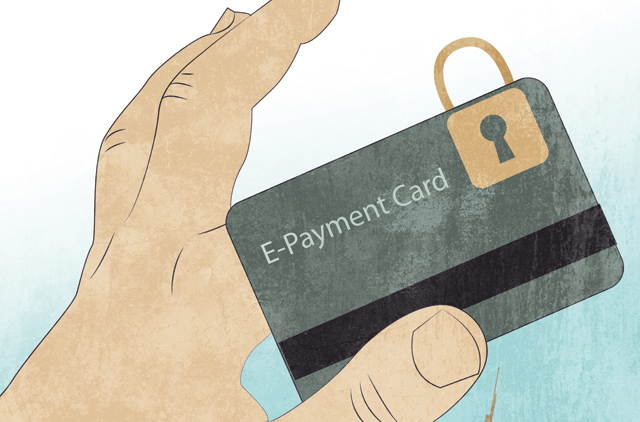Dubai: Ever thought of buying a gift item and paying for it as and when it is being advertised on television? That may soon be a reality, according to Michael Miebach, president of Middle East and Africa operations at global payment major MasterCard.
In today’s ever-busy world, more and more consumers are demanding flexibility in terms of payment channels that come with convenience, security and safety. MasterCard plans to facilitate payment from any device that has access to internet as plastic cards become less important.
“At the far end of the spectrum we see washing machines ordering their own detergents by themselves and that would be a connect device. [A] one-click acceptance solution like MasterCard solution is exactly what we are working on,” Miebach told Gulf News.
MasterCard is talking with makers of white goods such as washing machine to ensure payments, say if the appliance runs out of detergent, he added.
He reckons that business models will change as companies selling hardware move to a completely different model that tries to sell a service.
Eliminating fraud
To limit the spending on supplementary cards, every MasterCard transaction will go to MasterCard-operated stock management that will ensure that transactions are safe.
With just one click, consumers would be able to pay for a necklace or a ring advertised on a web-connected television, he added.
“In the future, we could see a mechanism where [one] could click on that item and buy. And that is not a vision but it’s happening today. It is called Shopify and it’s getting ready to be commercialised. On-demand purchases will bring your dumb television set into the connected world,” Miebach said.
There are also partnerships being discussed with large fridge manufacturers to turn the fridge of the future into an information hub in the home — one monitoring and implementing inventory management.
“The fridge would buy your milk for you and it will get delivered to your house and the fridge would be in a position for example to buy your daughter’s products from a particular store,” Miebach added. “The fridge would aggregate all of that into a simple desktop in a way that none of these complications would be there. The parameters of the inputs and all of that would lead to payment flows in a safe secured manner in an internet-based economy.”
New innovations in the world of domestic appliances such as fridges, television sets and washing machines are a reality today, albeit on a small scale.
Driving financial inclusion
However, the absence of banking services in any country could create problems for companies in terms of scale.
“We have a future where every device has become a commerce device. Everything that you do in life is somehow going through the net. If anyone does not have access to financial system, so you won’t have access to any of those services. So if we do not drive financial inclusion the way we are currently doing, we would get into two worlds at the end. The future of the internet of things and financial inclusion are essential for a fair and balanced financial future,” he added.
MasterCard Labs, which is based in Dublin, was created four years ago with the objective of driving the future of payments and commerce. The company is in partnership with household goods manufacturers and has also turned its sights to facilitating e-commerce in the fashion world.
In Egypt, MasterCard is working to exploit the current mobile penetration rate, which stands at 100 per cent, in increasing financial inclusion. The multiparty ecosystem would be linked to a citizen’s national identity card. The scheme also includes mobile operators, banks, the central bank and the Egyptian government. It will see about 54 million Egyptians include on a mobile payment cloud that would facilitate payment.
In Kenya, MasterCard Labs’ financial inclusion quest will leverage tried, tested and proven innovation and product development methodologies to create digital payment solutions that will enable more people to take advantage of formal financial services.
Digitising food
MasterCard is also playing an instrumental role in changing the lives of refugees in Lebanon, Jordan and Syria. The company has partnered with the World Food Program to digitise food services, giving crisis-hit people access to food.
“We drive a partnership on a food programme. MasterCard is in the hands of every refugee household,” Miebach said. “Logistics companies have been shipping food and that drives huge costs, inefficiencies, and sometimes availability and quality issues.”
The card is availed to the head of every household, allowing families to shop at designated merchants in certain villages or cities.
WFP credits the account of designated merchants, allowing them to stock up on dedicated items meeting set quality standards that are required by refugees, he added.









